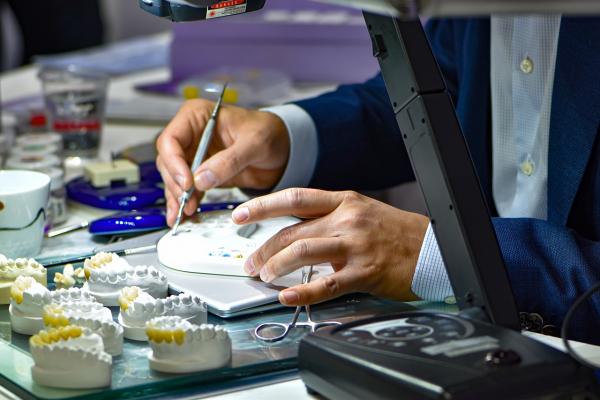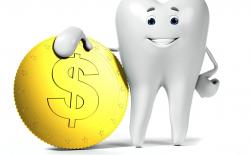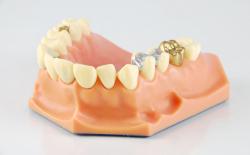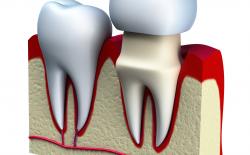What factors determine the llifespan of a crown?
Dental crowns are placed to protect the tooth structure, to maintain the arch integrity and harmonious occlusion.
A crown is placed on a tooth that requires support in cases of a large restoration, cariously destroyed tooth, root canal treated tooth etc.
Basically, a dental crown holds the remaining tooth structure strongly so that it can function properly, therefore crowns increase the life of the remaining part of the tooth.
These are the most important factors that determine the durability and the lifetime of a dental crown:
- The type of material used in crown preparation.
- Site of crown placement.
- Chewing stress (masticatory load) at the site of crown in the mouth.
- Eating habits and patterns.
- Arch shape: sharper arches (i.e. V shaped) create more stress as compared to U shaped arches.
- Alignment of teeth: in crowded or malaligned teeth, stresses are concentrated indifferently. Aligned teeth has more uniform stress distribution favoring increased lifespan of the crown.
- Para-functional habits like bruxism, night grinding reduce the lifespan as continuous heavy forces are delivered even at rest.
- Oral health and hygiene.
A short video by an Idaho Falls dentist about the longevity of dental crowns. Duration: 1:47
The material of the crown
On an average, metal crowns lasts longer as compared to other types of crowns. Metal crowns lasts for around 20 to 25 years or even more in few cases. Porcelain and ceramic crowns lasts for approximately 5 to 15 years.
Full coverage metal crowns lasts longer because metal has excellent strength, abrasion resistance and are tougher even in thinner sections.
The ceramics and porcelain requires more bulk to attain strength comparable to metals.
PFM crowns (porcelain fused to metals) also lasts for around 5-10 years or to 15 years in few cases.
Site of crown placement
The crowns on the front teeth lasts longer than back teeth crowns. Chewing forces are the major reason behind this.
These forces are extremely high in the rear teeth region (120- 180 lbs).
Front teeth are used only for biting, so, dental crowns in the front teeth usually last longer.
It is also more common to use metal based crowns in the posterior region (back tooth), that are expected to last longer.
There are studies indicating that ceramic crowns in the back region can last as long as metal-ceramic crowns.
Newer, properly manufactured crowns are durable, they usually last a decade or more.

Eating habits
Even though a dental crown are really strong, there are still a number of foods to avoid or at least eat less frequently.
These foods usually belong to one of these categories:
- hard, crunchy foods, like nuts or some raw vegetables (e.g. carrots): these hard foods might chip or break your crown
- sticky foods, like caramel: these can pop your crown off, especially if you have a loose crown
- too hot or too cold foods/drinks: such foods shouldn't cause problems, but sometimes they do, if this is the case, make sure you contact your dentist as the crown might need an adjustment or you might have other dental problems
If you have a temporary crown, you should be extra careful to avoid hard, sticky foods as temporary crowns are far less durable than permanent crowns.
Oral health and hygiene
A common reason for replacing dental crowns are secondary caries.
Neglecting oral hygiene can foster plaque formation, which favors bacterial growth resulting in caries. This can happen months or years after the crown placement.
Secondary caries usually cause pain when chewing.
In such cases your dentist needs to remove the crown to treat the caries under it.vThis is done by removing the decayed parts of the tooth.
The result of this procedure is that your old crown won't fit, since the shape of the tooth has changed and you'll need a new crown.
A Plano dentist talking about the expected lifetime of crowns. Duration: 0:55
The coverage of the crown
Full coverage crowns (covering all the surfaces) last longer as compared to partial crowns (3/4 and 1/2 crowns).
The sequence in descending order from longer to shorter lifespan: full coverage crowns > seven-eighth crowns > three-forth crowns > one-half crowns
How can I make my crown to last longer?
Crowns can be made to last longer by choosing the proper type of crown, appropriate material, proper tooth preparation and technique of crown placement. But these factors are determined by the dentists.
However once the crown is placed, there are a number of things you can do to make your crown last longer. Small efforts but effective habits like:
- Correct brushing technique.
- Brushing twice daily.
- Regular use of dental floss and mouth rinses.
- Good eating habits.
- Avoiding hard food chewing.
- Inculcating healthy habits, quitting smoking.
- Maintaining good general health: this maintains the gums and bone health ultimately improving the fit of the crown with increased lifespan.
- Regular dental visits.
- Water jets can be used to flush the area specially near the margins of the crown. This lowers the plaque retention and washes off the toxins and bacterial products.
If properly taken care of, crowns should last for decades.
Frequenlty asked questions
Can a crown last a lifetime?
Ideally, it should last a lifetime. But, practically the oral tissues undergo many changes anatomically and physiologically thus altering its shape, form and function.
A crown may last if it is placed at an older age without any systemic problems or systemic history. But it can be least expected to serve a lifetime purpose if placed at an early age when the body and the tissues are susceptible to many changes at biological, physiological, anatomical and hormonal levels.
How much does it cost to replace a dental crown?
Replacement of the crown cost you between $700 to $2000 depending upon the type of crown.
Replacement requires reshaping the tooth to obtain a new dental crown. So basically you need to pay for a new crown.
Check out our article about dental crown costs!
Can X- ray show decay under a crown?
Initial caries shows no radiolucency even in normal teeth, as more mineralized structure is destructed, the more it can be distinguished in radiographs.
Caries under a dental crown - like secondary caries -, is difficult to rule out completely as the radiolucency is masked by the radio-opacity of the crown.
In cases of cervical (neck) caries, it can be ruled out with X- rays and in root caries, it is easily distinguishable. X-rays do not show decay beneath the crown. To rule out such caries, a crown removal is required and then X- rays can be taken.
How long do crowns last on a dental implant?
A properly fitted dental implant should last for a lifetime. However the crown on the implant has the same longevity as it was supported by a natural tooth.
Even though secondary caries cannot occur on dental implants, it's still important to maintain proper oral hygiene.
How long do crown last after root canal treatment?
Crowns usually last for 5 to 15 years. They may last longer if properly taken care of.
Root canal treated tooth are more fragile as compared to vital tooth as the crown structure is lesser and also the water content is less due to the absence of pulp.
So, to improve the life span of the crown on root canal treated tooth, it is better to avoid chewing hard food like nuts and sticky food.
What is the most durable dental crown material?
Many dentists agree that gold is most durable material for dental restorations. Gold crowns often last for a lifetime, however because of aesthetic reasons they are rarely used.
How does a dentist remove a crown to replace it?
Removal of temporary crowns can be easily done with the help of straight elevator. It is easier because the cement used to glue does not bind strongly.
Permanent crowns require more force as stronger adhesives are used. Specialized crown removal kits are available which have an instrument to dislodge the crown from the tooth.
What should I do if a crown is very old?
If you have any discomfort, pain then you may need to replace the crown, your dentist will be able to determine that.
However if it is clinically well functioning with no problems, then there is no need to replace it.
You might also be interested in:
Dental Crowns Cost
The price of a dental crown depends on many factors. Read our article to find out more about what affects the cost of a dental crown.
Gold Dental Crowns
Gold dental crowns are the most durable crowns, they often last for a lifetime. Read our article to find out why gold is such great material for dental crowns!
Loose Dental Crowns
Loose dental crowns often need to be replaced. Find out why a tooth crown may become loose and what you should do in such cases.


